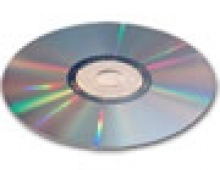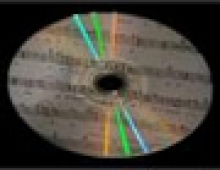
More games come in smaller packages
For years, purchasers of computer software have taken home Wheaties-sized boxes, pulled off the shrink wrap and torn through yards of cardboard -- folded stiffly to give the external sensation of fullness -- to get eventually to one lonely disc in a CD jewel case and a few small leaflets.
And retailers such as Wal-Mart found themselves swamped under a wave of other products in growing categories, such as video games and DVD movies, all jostling for shelf space.
So earlier this year, the PC game industry finally took the hint: It slimmed down the bloated packaging to about the height and width of those items.
Many recent games, including Grand Theft Auto III (Take 2), Lilo & Stitch (Disney) and Tiger Woods PGA Tour 2002 (EA Sports) have hit stores in boxes not much bigger than a paperback. The new measurements -- 7 1/2 by 5 1/4 inches -- match the width and height of DVD packaging, and they're slightly thicker at an inch deep. They're one-fourth the volume of traditional software boxes.
Widespread adoption could save publishers -- which collectively released 1,500 games and educational programs last year, says NPDTechworld -- tens of thousands on packaging costs, freight and storage. ''It seems more environmentally friendly, too,'' says Trudy Muller of Electronic Arts.
In the '80s, environmental groups assailed the music industry over the original cardboard ''longboxes'' for CDs. But, to the surprise of many in the PC industry, there never was a similar clamor about the oversized PC boxes. ''It always struck me that was at least one bullet we seemed to dodge,'' says Doug Lowenstein, president of the Interactive Digital Software Association, a trade group.
Instead, retailers' concerns about shrinking shelf space ultimately made packaging an issue. ''We wanted to preserve a box size that still allowed companies to communicate important marketing messages,'' he says, while responding to the ''clear sense that if (retailers) were going to continue to be able to stock as many of these games at retail, you had to reduce the box size. Frankly, a lot of retailers were shrinking the amount of space they were devoting to PC games because console games are so hot.''
About $1.9 billion worth of PC games will be sold this year, according to DFC Intelligence, a San Diego-based market research and consulting firm. But video-game system software will far surpass that at $3.7 billion. And all games for Sony's PlayStation 2, Nintendo's GameCube and Microsoft's Xbox come in packages the size of DVD boxes.
In comparison, computer software came in all shapes and sizes. Tomb Raider games from Eidos came in boxes shaped like pyramids. Links Championship 2002 and Age of Empires II: The Conquerers, both from Microsoft, were different heights and widths.
Many retailers support the new standard. ''It provides a variety of benefits including the ability to expand our assortment,'' says Wal-Mart spokewoman Karen Burk.
Game publishers had been wary of changing sizes unless all of them agreed. The belief was that bigger boxes ''showed you were getting a lot for your money,'' says Jerry Madaio of Electronics Boutique. But consumers have warmed to the change, he says: ''Most think (the boxes) didn't need to be that big. Some are even saying now they may keep the box.''
Not all companies have adopted the new size, but Lowenstein believes most will.
With games such as Tomb Raider and Thief, Eidos used different-shaped boxes to make their games stand out, but the game maker has reluctantly converted, says Eidos' Paul Baldwin. With larger boxes, he says, ''you could actually market a product differently.''
Microsoft would like to see boxes shrink even further, to the exact size of DVD and Xbox game packages, an experiment it tried with Clan Mech Pak, a $12.99 add-on to the popular MechWarrior 4 game.
''It's very expensive to make good games,'' says Beth Featherstone, head of marketing for Microsoft's PC group. ''The cheaper and more automated the packaging, the more dollars you can put into making games better.''
Since his group has been asking PC makers to help with more environmentally friendly disposal of PCs, Ted Smith, executive director of the Silicon Valley Toxics Coalition in San Jose, Calif., hopes that the move is a sign of things to come. ''If this kind of agreement works and they don't lose money, maybe they can think about incorporating recycled content into the packaging and the game (CDs) themselves,'' he says. ''That's really the next step.''
So earlier this year, the PC game industry finally took the hint: It slimmed down the bloated packaging to about the height and width of those items.
Many recent games, including Grand Theft Auto III (Take 2), Lilo & Stitch (Disney) and Tiger Woods PGA Tour 2002 (EA Sports) have hit stores in boxes not much bigger than a paperback. The new measurements -- 7 1/2 by 5 1/4 inches -- match the width and height of DVD packaging, and they're slightly thicker at an inch deep. They're one-fourth the volume of traditional software boxes.
Widespread adoption could save publishers -- which collectively released 1,500 games and educational programs last year, says NPDTechworld -- tens of thousands on packaging costs, freight and storage. ''It seems more environmentally friendly, too,'' says Trudy Muller of Electronic Arts.
In the '80s, environmental groups assailed the music industry over the original cardboard ''longboxes'' for CDs. But, to the surprise of many in the PC industry, there never was a similar clamor about the oversized PC boxes. ''It always struck me that was at least one bullet we seemed to dodge,'' says Doug Lowenstein, president of the Interactive Digital Software Association, a trade group.
Instead, retailers' concerns about shrinking shelf space ultimately made packaging an issue. ''We wanted to preserve a box size that still allowed companies to communicate important marketing messages,'' he says, while responding to the ''clear sense that if (retailers) were going to continue to be able to stock as many of these games at retail, you had to reduce the box size. Frankly, a lot of retailers were shrinking the amount of space they were devoting to PC games because console games are so hot.''
About $1.9 billion worth of PC games will be sold this year, according to DFC Intelligence, a San Diego-based market research and consulting firm. But video-game system software will far surpass that at $3.7 billion. And all games for Sony's PlayStation 2, Nintendo's GameCube and Microsoft's Xbox come in packages the size of DVD boxes.
In comparison, computer software came in all shapes and sizes. Tomb Raider games from Eidos came in boxes shaped like pyramids. Links Championship 2002 and Age of Empires II: The Conquerers, both from Microsoft, were different heights and widths.
Many retailers support the new standard. ''It provides a variety of benefits including the ability to expand our assortment,'' says Wal-Mart spokewoman Karen Burk.
Game publishers had been wary of changing sizes unless all of them agreed. The belief was that bigger boxes ''showed you were getting a lot for your money,'' says Jerry Madaio of Electronics Boutique. But consumers have warmed to the change, he says: ''Most think (the boxes) didn't need to be that big. Some are even saying now they may keep the box.''
Not all companies have adopted the new size, but Lowenstein believes most will.
With games such as Tomb Raider and Thief, Eidos used different-shaped boxes to make their games stand out, but the game maker has reluctantly converted, says Eidos' Paul Baldwin. With larger boxes, he says, ''you could actually market a product differently.''
Microsoft would like to see boxes shrink even further, to the exact size of DVD and Xbox game packages, an experiment it tried with Clan Mech Pak, a $12.99 add-on to the popular MechWarrior 4 game.
''It's very expensive to make good games,'' says Beth Featherstone, head of marketing for Microsoft's PC group. ''The cheaper and more automated the packaging, the more dollars you can put into making games better.''
Since his group has been asking PC makers to help with more environmentally friendly disposal of PCs, Ted Smith, executive director of the Silicon Valley Toxics Coalition in San Jose, Calif., hopes that the move is a sign of things to come. ''If this kind of agreement works and they don't lose money, maybe they can think about incorporating recycled content into the packaging and the game (CDs) themselves,'' he says. ''That's really the next step.''




















